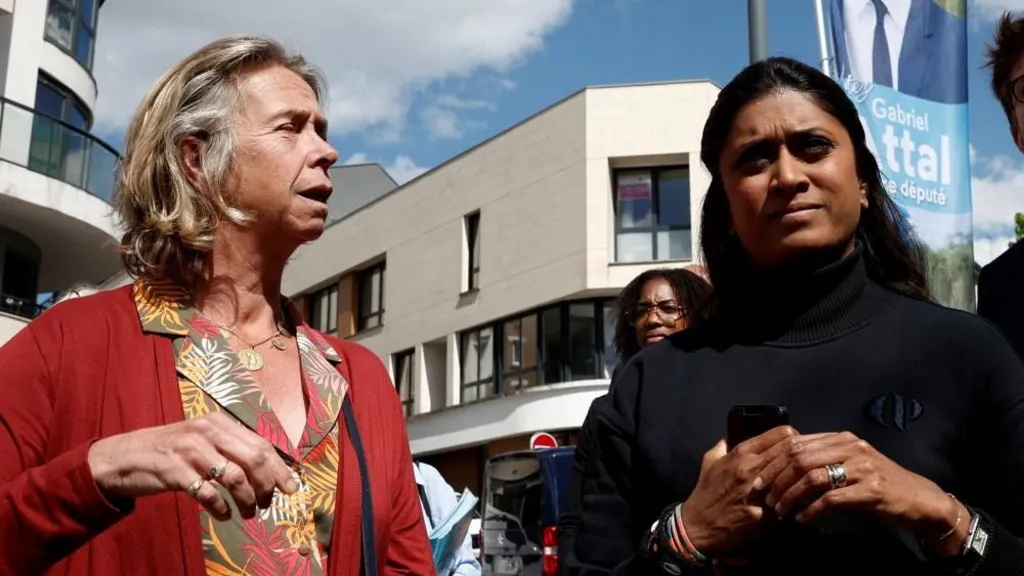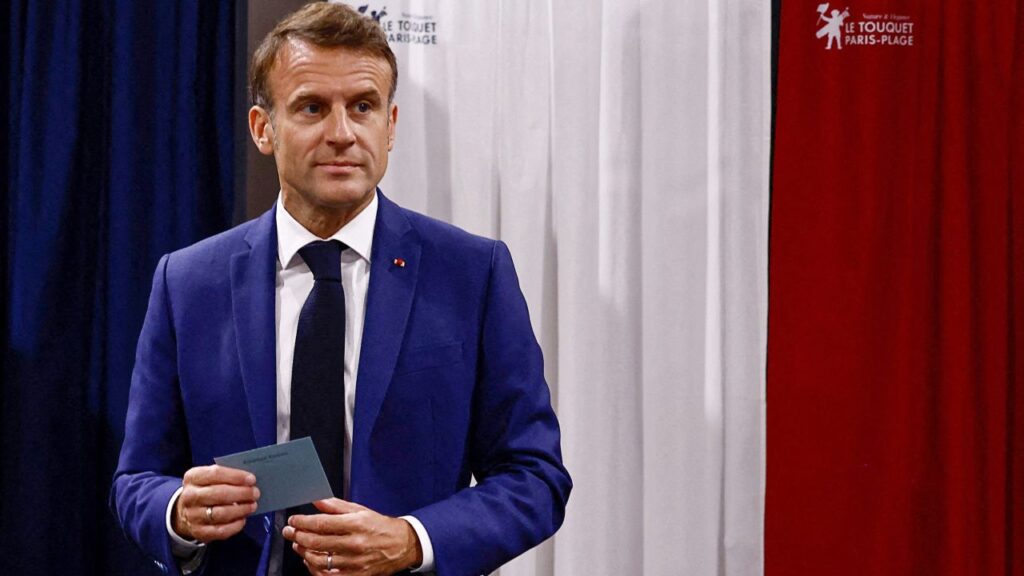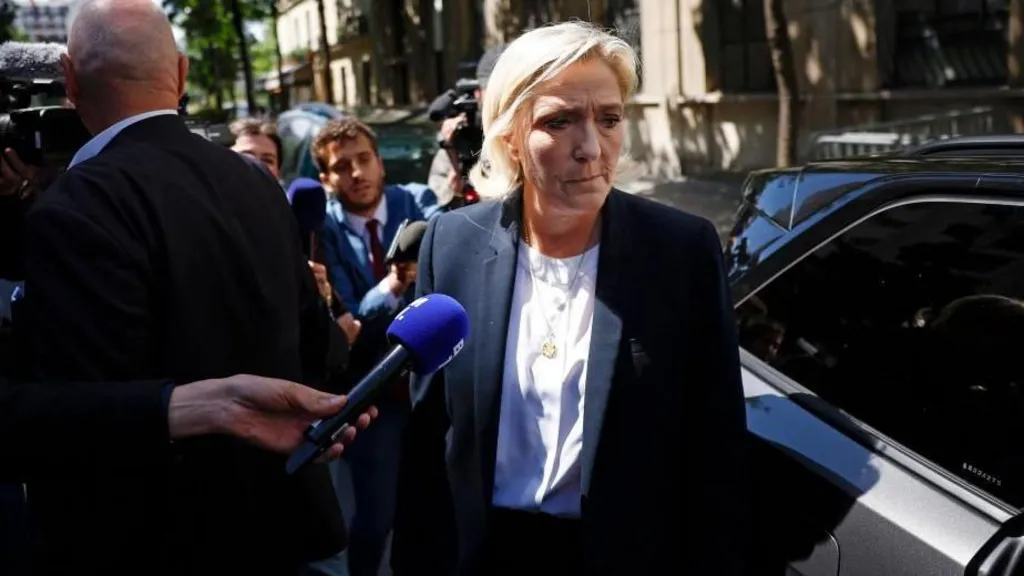France is experiencing an alarming surge of political violence in the final days leading up to Sunday’s crucial runoff in the parliamentary elections. Interior Minister Gérald Darmanin has reported over 50 physical attacks on candidates and activists, highlighting the increasingly tense political climate as the far-right National Rally (RN) party, led by Jordan Bardella, stands poised for a potential victory.

A high-profile incident underscoring this volatile atmosphere involved government spokeswoman Prisca Thevenot, her deputy Virginie Lanlo, and a party activist being brutally assaulted while putting up election posters in Meudon, southwest of Paris. The attack, caught on camera, showed youths swarming around the group, resulting in injuries including a broken jaw and a damaged car. Prime Minister Gabriel Attal, visiting the site with Thevenot, strongly condemned these “attacks of intolerable cowardice,” emphasizing the need to reject the spreading climate of violence and hatred.
The attacks reflect the charged atmosphere surrounding an election where RN, having secured 33.2% of the vote in the first round, is leading in polls. In a strategic move to counter the far-right’s surge, 217 candidates have withdrawn from local runoffs to improve the chances of blocking an RN majority in the 577-seat National Assembly. This includes 130 candidates from the left-wing New Popular Front and 81 from President Emmanuel Macron’s alliance.

Responding to the escalating tensions, Darmanin announced the deployment of 30,000 police officers for Sunday’s vote to prevent potential unrest. The minister attributed the violence to a mix of spontaneous anger and actions by extreme political groups from both the far-left and far-right.
The latest Ifop poll suggests RN may fall short of an absolute majority, projecting between 210-240 seats. However, the party’s strong showing has raised significant concerns among France’s minorities about potential RN policies. These include plans to give French citizens preference over immigrants for jobs and housing, changes to citizenship laws, and restrictions on dual citizens holding sensitive jobs.

The election has also sparked broader societal reactions. Prosecutors are investigating an extremist “patriotic network” website that published a list of almost 100 lawyers “for eliminating” after they signed an open letter against National Rally. In the sports world, French football captain Kylian Mbappé has urged voters to “make the right choice,” expressing concern over the first-round results without explicitly naming any party.
This election highlights the growing polarization in French politics and the challenges facing the country’s democratic process amid rising far-right influence. The violence and intimidation tactics have raised questions about the integrity of the electoral process and the potential long-term impacts on French society and governance.
As France approaches this critical juncture, the international community watches closely, recognizing the potential ripple effects of the election outcome on European politics and global far-right movements. The results of Sunday’s vote could significantly reshape France’s political landscape and have far-reaching implications for the country’s domestic and foreign policies in the years to come.
Credit:bbc.com



